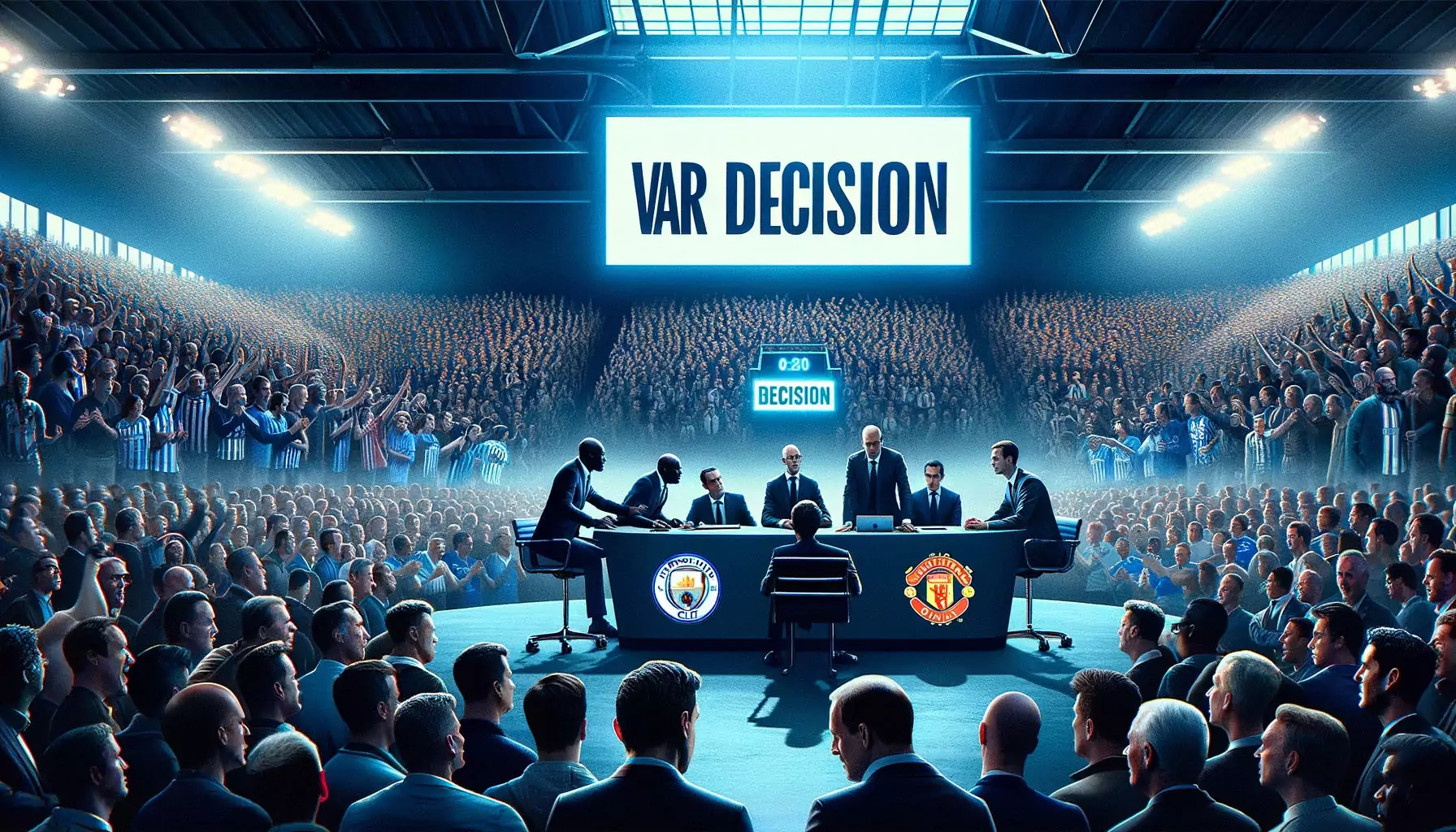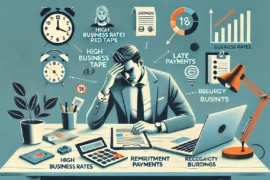The future of the much-maligned Video Assistant Referee (VAR) hangs in the balance as Premier League clubs prepare to vote on whether to keep or scrap the technology.
VAR came under intense scrutiny during the current campaign. It was arguably the most sustained criticism of VAR since its introduction at the start of the 2019-20 Premier League season.
Now the much-vaunted arbiter of contentious and potentially match-turning decisions is facing the chop. Or will VAR be given a stay of execution?
Tradesman and their tools
Remember that adage about a bad tradesman blaming his tools? It rings true about some of the attacks on VAR.
The debate around VAR can’t seek to criminalise technology while exonerating humans. It should actually be the other way round.
There is no doubt in my mind that the VAR proposal came from a good sporting heart, an idea paved with good intentions. It’s a pity it has been undermined by poor implementation.
Quite clearly, VAR divides opinion. Some say it is a promoter of fair play, others argue it is a perpetrator of injustice.
What they said
There has been near universal criticism of VAR this season, with managers railing against the technological intervention. It’s no exaggeration to say VAR suffers from a crisis of confidence. Many managers and fans alike have lost faith in a good idea gone awry.
“I’ve always been for VAR but I think it’s causing a big problem at the moment. Maybe tonight has finally turned me against VAR. I thought it would probably help but it doesn’t seem to be,” said Wolves manager Gary O’Neil after his side’s controversial defeat at Fulham.
If it was up to him, outgoing Liverpool manager Jurgen Klopp would scrap VAR. Earlier this season the German called for a replay after Liverpool found themselves on the wrong end of a VAR decision.
“Some people probably don’t want me to say, but not as the manager of Liverpool so much, more as a football person, the only outcome should be a replay,” said Klopp after Luis Diaz’s goal against Tottenham was incorrectly ruled out for offside.
Recently, Tottenham manager Ange Postecoglou joked that he was going to move to a country where there is no VAR. The Aussie believes VAR is a victim of the game’s futile quest for perfection.
The Spurs boss is also not enamoured with a project that has effectively usurped referees’ authority.
“There doesn’t seem to be a great call for us to go back to accepting the referee’s decision in the majority of cases,” he said.
“I understand goal-line technology. That’s a simple one as that came in and no one’s complained about it. But in searching for this utopia where there are no wrong decisions in a game… that doesn’t exist and it never will.”
A common theme running through managers and pundits’ criticism of VAR is the inconsistent interpretation of the laws of the game.
“I got booked because I was complaining, of course I deserved the yellow card, but you have to complain. Every week there is a moment, your players and your club are losing points and losing games because they aren’t making correct decisions, and they are not consistent with their interventions and the VAR. Sometimes it’s clear and obvious but sometimes it’s not. I’m very disappointed,” said exasperated Bournemouth manager Andoni Iraola after the Cherries’ controversial defeat to Brentford.
Arsenal manager Mikel Arteta launched a scathing attack on VAR following his side’s defeat at Newcastle United.
Antony Gordon’s controversial winner was allowed to stand after a forensic VAR examination could not confirm whether the ball had gone out of play or not before it was crossed for the Magpies forward to score.
“We have to talk about the result because you have to talk about how the hell this goal stands up and it’s incredible. I feel embarrassed but I have to be the one now coming here to try to defend the club and please ask for help, because it’s an absolute disgrace that this goal is allowed; it’s an absolute disgrace,” fumed Arsenal manager Mikel Arteta in his post match interview.
Suffice to say this has been an instantly forgettable season for VAR, and generally a very poor advert for technological intervention in sport.
Symptoms vs disease
If clubs vote against VAR they will only be treating the symptoms not the disease. What VAR has done is to expose the incompetence of humans. After all, the technology is manned by humans.
When they meet next month to discuss VAR’s fate, Premier League clubs will do well to remember that in essence it will be the quality of top-flight match officials that will be on trial. VAR is just a convenient scapegoat.
A vote against VAR is a vote of no confidence in match officials. Its discontinuance will not solve the clear and present problems attendant on officiating football games.
Of course there is a lot not to like about VAR, especially the intermittent interruption of matches to allow for the intense scrutiny of identified passages of play.
Quite a few times purists pulled their hair out at VAR decisions they believed to be against the spirit of the game. For example, when goals are ruled out because the scorer’s toenail was adjudged to have been offside.
Such verdict are particularly an affront to the sensibilities of many brought up to accept as “law” that when in doubt about touch-and-go offside decisions officials must err on the side of the attacking side.
That said, VAR has a lot of redeeming qualities. In fact, the VAR pros outweigh the cons in my opinion.
Former Arsenal manager Arsene Wenger and other pundits were full of praise for the efficient manner with which VAR was used at the Africa Cup of Nations earlier this year. The technology was also employed to excellent effect in the UEFA Champions League.
On the whole, VAR has been useful for those passages of play missed by on-field officials and the clear and obvious errors.
The problem is that the subjectivity of those manning VAR has supplanted the objectivity and fairness the technology was supposed to bring to officiating.
An objective tool has been compromised by subjective human intervention, systematically eroding VAR’s credibility in the process. As testament to this, we saw how a handful of match officials were stood down for a few matches as censure for falling short of the required standards.
Whither VAR?
Will the game be better without VAR?
Only if we embrace and accept the authority of match officials and the inherent human errors.
The romantics and the purists will not shed a tear for VAR if it was scrapped. They would love to see football return to its foundations, where the referee’s decisions are accepted by all with good grace.
The reality, however, is that football has evolved and so should officiating. The beautiful game can’t run away from technology.
Q: What does the acronym VAR stand for?
A: Video Assistant Referee
Q: When was VAR introduced in the Premier League?
A: At the start of the 2019-20 season.
Q: Which Premier League manager joked about moving to a country where there is no VAR?
A: Tottenham manager Ange Postecoglu
Q: Who is the Liverpool forward whose legitimate goal was ruled out by VAR for offside?A: Luis Diaz
Q: Which tournament was singled out for special by Arsene Wenger for its exemplary of VAR?
A: The Africa Cup of Nations
Q: What sport is popularly known as the beautiful game?
A: Football






